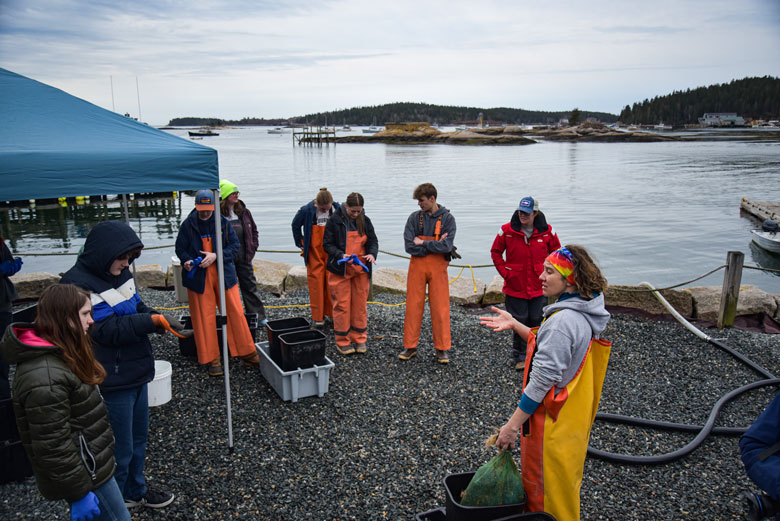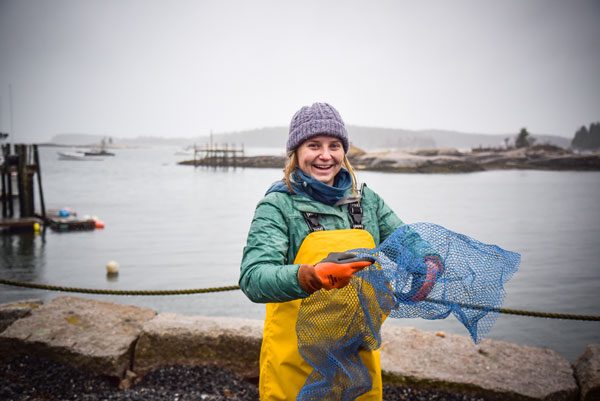
Students from Islesboro Central School and Vinalhaven School joined Hurricane Island Center for Science and Leadership educators for a boat ride to Deer Isle in mid-April as part of an ongoing collaborative marine research project.
The crew of high school students and Hurricane Island educators joined Dr. Carla Guenther, chief scientist at the Maine Center for Coastal Fisheries, who is the principal investigator. The focus of this project is to understand where to find juvenile scallops along the Maine coast, and the method has been to deploy mesh spat bags in the fall and retrieve them throughout the spring.
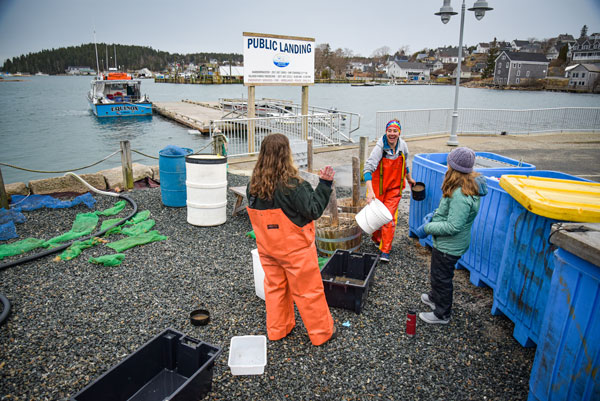
The roster of researchers on this multi-year, NOAA-funded project include Dr. Caitlin Cleaver, former Hurricane Island Center for Science and Leadership Research Director and currently at Colby College, and Phoebe Jekielek, another former Hurricane Island research director, currently a UMaine PhD candidate. They were joined by the organization’s current Research Director Dr. Anya Hopple.
Assistant Education Director Kyle Amergian and year-round educator Claire Gabel joined in with students and teachers Haley Currie (Islesboro) and Ruth Brooker (Vinalhaven) to pick apart the bags, panning for the gold of hole-punch sized scallops amidst a slurry of marine growth from the past six months.
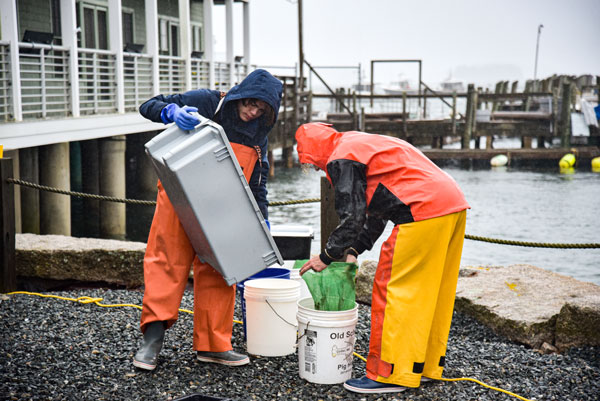
The spat collection bags hosted arctic boring clams, mussels, and the often hilariously explosive sea squirts, or tunicates.
This survey began as an Atlantic States Marine Fisheries Commission project supported the survey in fall of 2022, and then the project received funding from NOAA’s Saltonstall-Kennedy for an additional two years, with spat bags being deployed again in fall of 2024.
The Vinalhaven students had a surprise during their sorting session with Eastern Maine Skippers Program founder Tom Duym on hand to help and boost morale with a mid-sort round of hot cocoa and glove replenishments from the nearby Harbor View store.
Many of the students have family connections to the working waterfront or fish from their own boats. Working with the spat bags introduced them to the fairly low-tech process by which would-be scallop farmers collect their stock. This is unique to scallop aquaculture as hatchery support is still being developed, so all farmed scallops start in the wild and need to be collected with spat bags every generation.
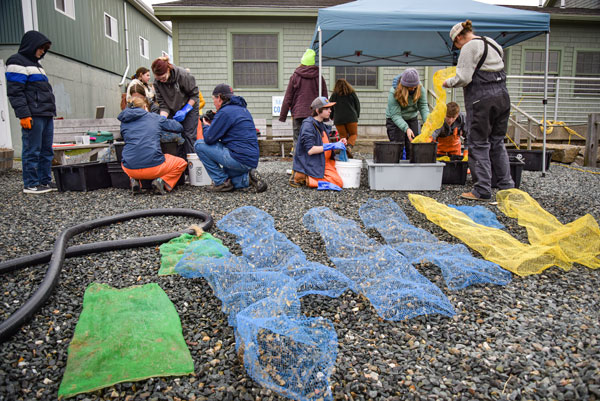
To learn more about Hurricane Island Center for Science and Leadership and their work to integrate scientific research and education, please visit www.hurricaneisland.net
